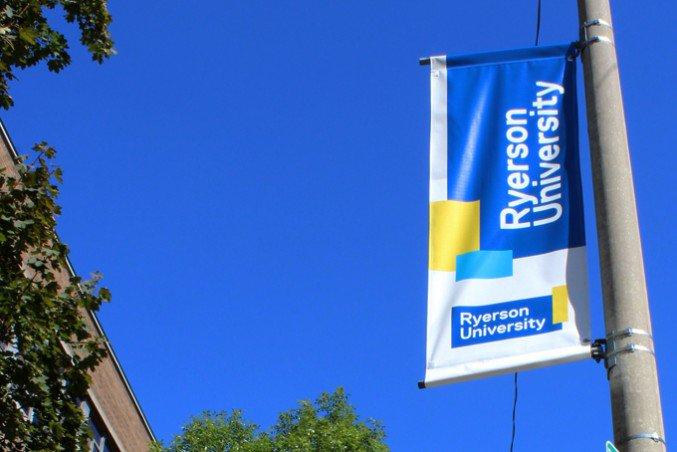By Mike Ott
Right now, prospective university students are attempting to make the huge decision — “what school will I apply to?” Many of these kids will be looking at the Maclean’s University Rankings.
Ryerson’s overall ranking was ninth out of 15 Canadian universities this year and Mary Dwyer is the editor in charge of the rankings at Maclean’s. She explains that Ryerson does extremely well in some categories, and not-so-hot in others.
According to Dwyer, Ryerson does consistently well every year in reputation, and by reputation, Maclean’s refers to how the university is perceived by professionals country-wide.
She says Ryerson has always been near the top of this category. This is due to “applied learning and degrees that lead right to jobs.” She also notes the importance of Ryerson’s Digital Media Zone, which scored the school big points this year in the surveys.
However it would seem that this answer may not even matter to many students. Rather than purchasing a copy of the rankings issue, the internet has enabled prospective Rams to do their research online instead.
Jessie Saunders-Drutz, a third-year media production student, said Ryerson’s ranking didn’t factor into her applications and that there were a lot of other qualities Maclean’s didn’t consider that matter more to her.
“The Maclean’s standard is not taking into account a lot of things that go into university life,” Saunders-Drutz says. “Is commuting required at that school? Is there a strong sense of community? Is it multicultural? What types of extracurricular [activities] are available to you?”
“I never really looked so much at overall rank either because the school is so large that one faculty could have changed the rank,” says Michael Wong, a first-year disability studies major.
He says that he looked more at the population, student support availability and the actual program’s reputation more than the overall rank of the school.
“I looked and saw that Ryerson’s program seemed to be the best match. Also many of my professors in college did this program too,” Wong says.
Both Wong and Saunders-Drutz explain that they have looked elsewhere for information and that the Maclean’s rankings did not take into account the factors that they personally were concerned with.
Saunders-Drutz says it’s the program people want, not the school. For Wong, it was the options for student support and the potential professors he would have.
Sophia Koutsikaloudis is a science major at Guelph. For her, the rankings mattered more to her mother. “My mom was the one who pushed the information about the rankings on me, especially with it appearing in Maclean’s. In my opinion, it targets the parents of students in the hopes they will influence the decisions of their child.”
She adds that the rankings were “a very minimal influence” in her decisions, citing that they are much too vague to be useful.
“I think what really swayed me to Guelph was my tour of the school, high school information session and many other sources mentioning a positive student life, especially with the food,” Koutsikaloudis said.
Campus life, food quality, commuting and diversity. These are all things that the Maclean’s rankings do not consider. Dwyer explains that they added this year’s “student opinion” section in order to combat this problem. The student opinion rankings includes the school’s bureaucracy, residence living, sexual assault prevention and mental health services.
The comprehensive category was topped by Guelph (five in the normal rankings) and Ryerson found itself at eighth, close to its place in the normal rankings.
Jordan Daniels is a high school student who recently finished her university applications. She says she didn’t consult the rankings because they did not look at factors she was concerned with.
Daniels says the most prominent indicator for her applications was the tours offered by the schools. She applied to and toured Brock, University of Ottawa and Carleton.
“I fell in love with the city of Ottawa when I went to tour, so that helped with the decision of to apply as well,” she says.
Daniels adds that the new student opinion section is crucial. It is important to know that “people enjoyed the school that they’re studying at,” she says.
Regardless of the usefulness of the rankings, Ryerson’s low place in its category signals a need for improvement.
In order to place higher, Dwyer says Ryerson must improve in the categories where it lacks points. These include the library, grants, student and faculty funding and acquisition.










Leave a Reply